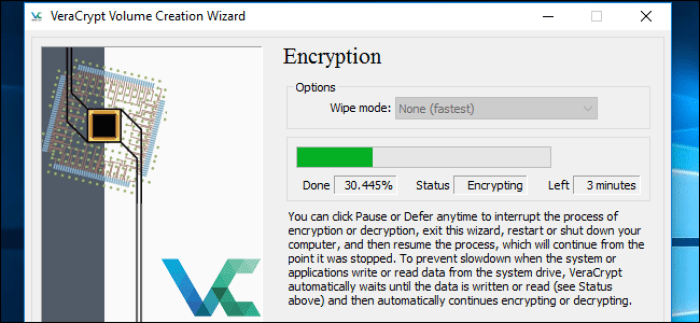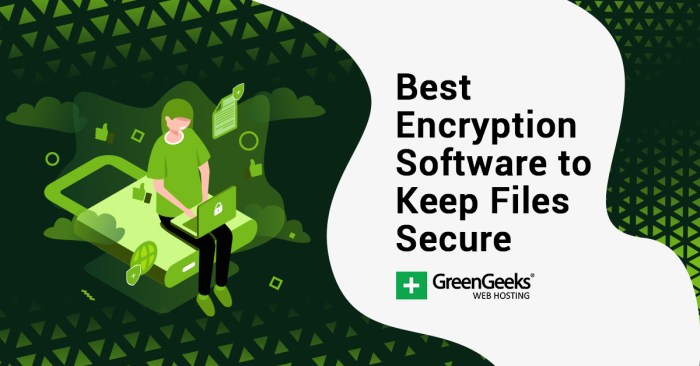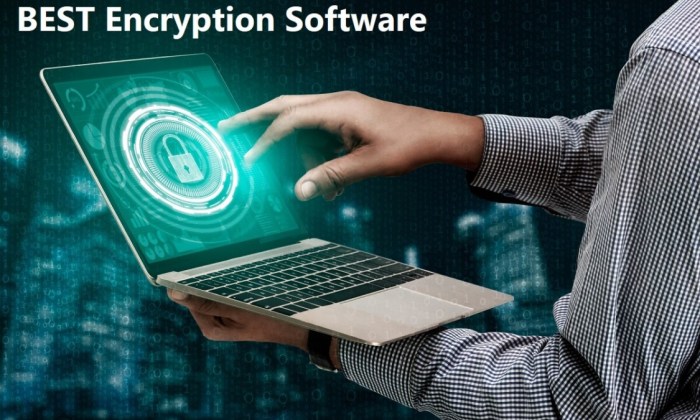In today’s interconnected world, data security is paramount. Protecting sensitive information from unauthorized access is crucial for individuals and organizations alike. Drive encryption software offers a robust solution, safeguarding your data even if your device is lost, stolen, or compromised. This comprehensive guide explores the best drive encryption software options available, helping you choose the perfect solution for your needs.
We’ll delve into various features, compare leading software, and address frequently asked questions to ensure you’re well-informed before making a decision.
Understanding Drive Encryption: Types and Methods
Drive encryption, also known as disk encryption, employs cryptographic techniques to render your data unreadable without the correct decryption key. This ensures that even if a physical hard drive or SSD falls into the wrong hands, the data remains secure. There are two primary types of drive encryption:
Full Disk Encryption (FDE), Best drive encryption software
Full disk encryption encrypts the entire hard drive or SSD, including the operating system, applications, and user data. This provides the highest level of security, as all data is protected. Popular FDE solutions often integrate seamlessly with the operating system, providing transparent encryption without significant performance impact. Examples include BitLocker (Windows), FileVault (macOS), and LUKS (Linux).
File-Level Encryption
File-level encryption, in contrast, encrypts individual files or folders. This offers a more granular approach to data protection, allowing you to selectively encrypt sensitive information while leaving other data unencrypted. While less comprehensive than FDE, it’s useful for protecting specific documents or projects. Many cloud storage services and third-party applications offer file-level encryption features.
Encryption Methods: AES and Others
The strength of drive encryption relies heavily on the underlying encryption algorithm. Advanced Encryption Standard (AES) is the most widely used and considered a highly secure algorithm. AES-256, with a 256-bit key, is particularly robust, offering a virtually unbreakable level of protection for most users. Other algorithms exist, but AES-256 remains the gold standard for drive encryption.
Top Drive Encryption Software Options: Best Drive Encryption Software
The market offers a range of drive encryption software, each with its strengths and weaknesses. Here are some of the leading options, categorized for clarity:
For Windows:
* BitLocker: Built into Windows Pro and Enterprise editions, BitLocker offers robust full-disk encryption. It’s a reliable and readily available choice for Windows users.
VeraCrypt
A free, open-source alternative to BitLocker, VeraCrypt provides strong encryption and supports various operating systems. It’s a popular choice for users seeking a secure and cost-effective solution.
Microsoft Azure Information Protection

Source: weebly.com
For enterprise-level security, Microsoft Azure Information Protection provides robust encryption and data loss prevention capabilities. This is a cloud-based solution best suited for large organizations.
For macOS:
* FileVault: Apple’s built-in full-disk encryption solution, FileVault, offers seamless integration with macOS and is generally considered secure and user-friendly.
Disk Utility (with third-party tools)
While macOS offers basic encryption through Disk Utility, users might opt for third-party tools for advanced features or stronger encryption algorithms.
For Linux:
* LUKS (Linux Unified Key Setup): LUKS is a standard for disk encryption on Linux systems, providing a flexible and secure framework for encrypting partitions and drives. Many Linux distributions integrate LUKS directly.
dm-crypt
A kernel-level encryption module for Linux, dm-crypt provides the underlying encryption functionality for LUKS and other encryption tools.
Cross-Platform Options:
* VeraCrypt: As mentioned previously, VeraCrypt stands out for its cross-platform compatibility, supporting Windows, macOS, and Linux. Its open-source nature ensures transparency and community scrutiny.
Choosing the Right Encryption Software: Factors to Consider
Selecting the best drive encryption software depends on several factors:
* Operating System Compatibility: Ensure the software is compatible with your operating system.
Ease of Use
Consider the user interface and how easy the software is to set up and manage.
Security Features
Look for strong encryption algorithms (AES-256 is recommended), secure key management, and other security features like self-destruct options.
Performance Impact
Some encryption software can impact system performance. Choose software that minimizes this impact.
Cost
Evaluate the pricing model; some solutions are free and open-source, while others are commercial products.
Support
Consider the level of technical support offered by the vendor.
Frequently Asked Questions (FAQ)
- Q: Is drive encryption necessary? A: The need for drive encryption depends on the sensitivity of your data. If you handle sensitive personal information, financial data, or confidential business information, drive encryption is highly recommended.
- Q: Will drive encryption slow down my computer? A: While encryption can add some overhead, modern hardware and software minimize the performance impact. The slowdown is often negligible for most users.
- Q: What happens if I forget my encryption password? A: You’ll lose access to your encrypted data. Therefore, choosing a strong, memorable password and storing it securely is crucial. Some software offers recovery options, but this should be carefully considered.
- Q: Can I encrypt an external hard drive? A: Yes, most drive encryption software supports encrypting external hard drives and USB drives.
- Q: Is drive encryption enough to protect my data? A: While drive encryption is a critical layer of security, it’s not the only measure. Combine it with strong passwords, regular software updates, and a robust security posture for comprehensive data protection.
Conclusion
Drive encryption is a vital component of a comprehensive data security strategy. By understanding the different types of encryption, available software options, and key considerations, you can make an informed decision to protect your valuable data. Choosing the right software depends on your specific needs and technical expertise. Remember to prioritize strong encryption algorithms, ease of use, and reliable support when making your selection.
References
Call to Action
Protect your data today! Choose the drive encryption software that best fits your needs and start safeguarding your valuable information. Don’t wait until it’s too late.
User Queries
What is the difference between full-disk encryption and file-level encryption?
Full-disk encryption protects the entire drive, while file-level encryption only protects specific files or folders.

Source: greengeeks.com
Is hardware encryption more secure than software encryption?
Hardware encryption is generally considered more secure as it’s less susceptible to software vulnerabilities and malware attacks.
How do I choose the right encryption key size?
AES-256 is currently the industry standard and offers a high level of security. Larger key sizes generally provide stronger encryption.

Source: techcult.com
What happens if I forget my encryption password?
Data recovery from forgotten encryption passwords is typically impossible. Choose a strong, memorable password and consider using a password manager.
